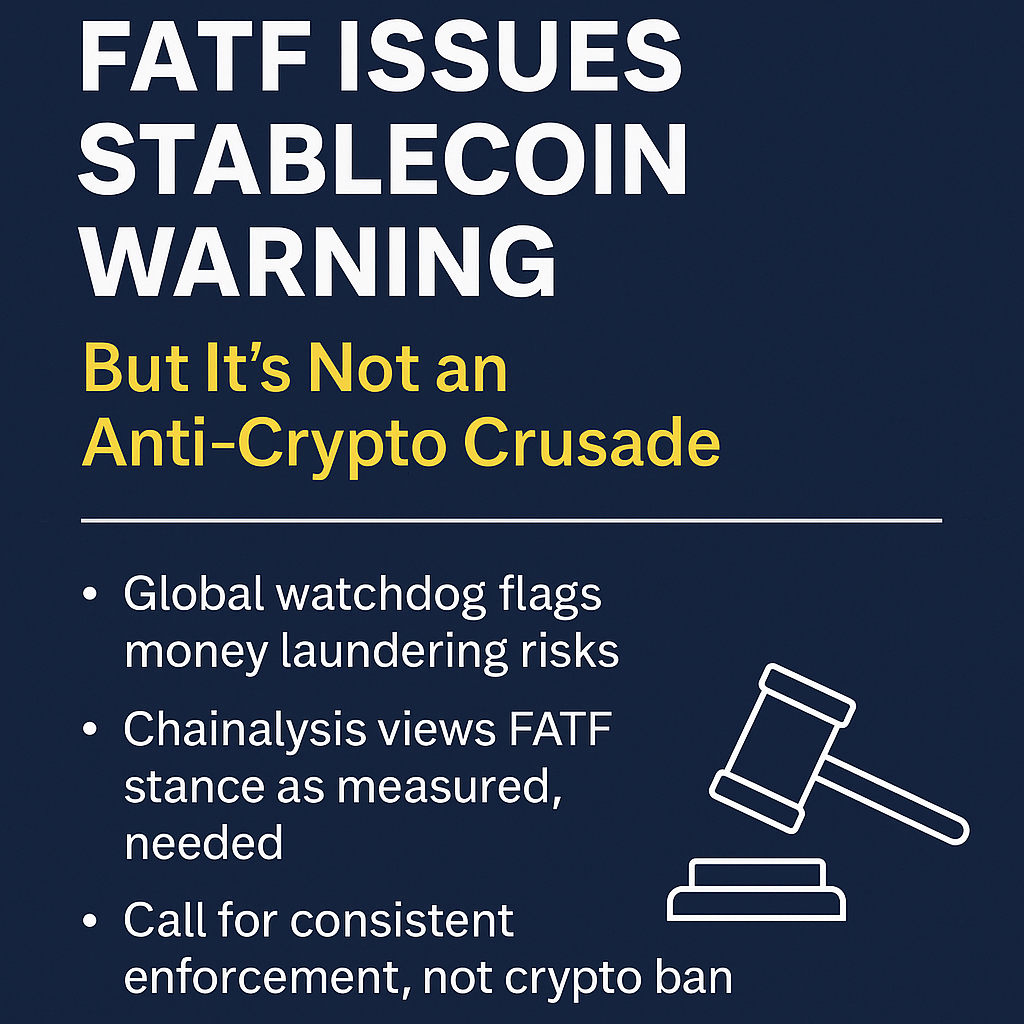Why global watchdogs are eyeing stablecoins, and why firms like Chainalysis say it’s not a war on crypto
Stablecoins under the spotlight
The Financial Action Task Force (FATF) has issued a new policy brief warning about the growing misuse of stablecoins in financial crime. The report, released in June 2025, outlines rising concerns that stablecoins—particularly those enabling anonymous peer-to-peer transactions—are being leveraged in money laundering, terrorist financing, and sanctions evasion schemes.
Key risks flagged include:
- Anonymity-enhancing mechanisms like privacy wallets
- Cross-chain swaps and DeFi platforms with no KYC
- Lack of regulatory oversight in some jurisdictions
However, the FATF insists the report is not an attack on crypto, but a call for more consistent enforcement of existing anti-money laundering (AML) frameworks.
Chainalysis & Asset Reality: This isn’t anti-crypto
In an interview with Cointelegraph, executives from blockchain analytics firm Chainalysis and digital asset recovery firm Asset Reality argued that the FATF’s position is both measured and constructive.
“The narrative is changing. Regulators aren’t asking ‘Should crypto exist?’ anymore. They’re asking: ‘How do we govern this like any other financial market?’”
— Hugh Gallagher, Asset Reality
Chainalysis noted that illicit activity in crypto still makes up less than 1% of total volume, but warned that stablecoins may become a “preferred vehicle” due to their speed, liquidity, and price stability—especially when compared to more volatile cryptocurrencies like Bitcoin.
Why stablecoins are a double-edged sword
Stablecoins such as USDT (Tether) and USDC (Circle) offer immense utility: fast, borderless payments and dollar access in underbanked markets. But that very efficiency can also attract bad actors.
The FATF’s main worry? That some stablecoin ecosystems are insufficiently monitored or operate across jurisdictions with weak AML enforcement, making them harder to track than traditional crypto tokens.
What’s next for compliance?
The FATF is pushing all member countries to:
- Fully implement its Travel Rule, which requires sender/recipient info in crypto transactions
- Require VASPs (Virtual Asset Service Providers) to monitor unhosted wallets more strictly
- Promote global coordination between regulators, analytics firms, and law enforcement
In response, Chainalysis and Asset Reality are expanding training programs and partnerships to help governments trace and seize stablecoin-related assets more effectively.
Bottom line
The FATF isn’t declaring war on stablecoins—it’s calling for smarter, harmonized regulation to prevent misuse while preserving innovation. For crypto-native firms, the message is clear: embrace compliance or risk being shut out of mainstream finance.
As Gallagher put it:
“The winners of the next crypto wave won’t just be innovative. They’ll be compliant.”




